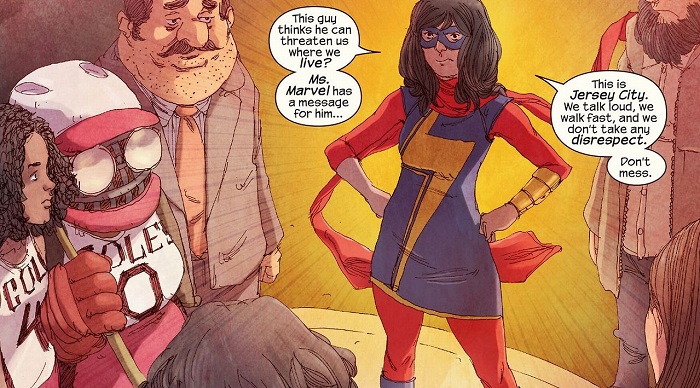May is Asian Pacific American Heritage Month, and in light of all the whitewashing of Asian roles going on in Hollywood right now, I think it’s time for a little spotlighting. It’s no secret how poorly treated many Asian and Pacific Islander characters are in media and how often their cultures are appropriated for white characters and stories.
I always hate those “Top Ten” lists that act like their ranking is the definitive list, as if it’s completely objective and scientific. So instead what follows is a list of my ten favorite Asian and Pacific Islander comic book characters. Some of them are pretty far under the radar while others are obvious additions, but j’adore each and every one. There’s a lot of non-superheroes here, with a deep dive into indie and non-Marvel/DC publishers. Not because I dislike most of the Asian American/Pacific Islander superheroes, but because I don’t think either Marvel or DC has really figured out how to do them without falling back on stereotypes and tokenism. There are a few wins—Amadeus Cho is cool and I’m way looking forward to Gene Luen Yang’s Chinese Superman—but for the most part they tend to get relegated to sidekicks, teammates, alternate dimension easily excised from canon, or martial artists. The people on this list looked at those options and said “Hell no.”
Did I overlook your fave? Share your love in the comments.
Allison Mann
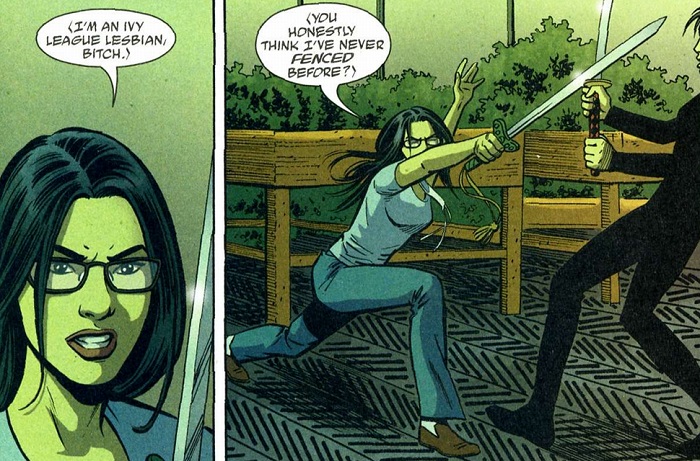
Real name: Ayuko Matsumori
Creators: Brian K. Vaughan, Pia Guerra
Origin: Y: The Last Man #1, 2002, Vertigo
In lesser hands, Dr. Allison Mann might have ended up a stereotype—glasses, smart, into science and math, focused on excellence to the exclusion of fun. But in Y: The Last Man, she defies and deconstructs tropes right and left. She actively resists her father’s will and legacy by changing her name, then uses her genius to wage war against his catastrophic experiments. She confronts her identity and the identity forced upon her by others by being gay. And she comes to terms with her world by redrawing it how she sees fit. Allison starts off the series as a self-serious, driven overachiever who sacrifices personal happiness for successes in work and ends up a woman who knows the value of true relationships. Yorick may be the chosen one, but Allison (and Agent 355) do the real work and undergo the greatest transformations.
David Nguyen

Creator: Vi Cao
Origin: 001-Friendship, 2012, webcomic
I stumbled upon David Doesn’t Get It not online but at the Prism Comics book at this year’s WonderCon. While the number of comics featuring gay and lesbian characters is increasing rapidly, the rest of us in the Queer community can pretty much count our representation on one hand. So when I walked into the Prism booth I asked for all the asexual comic books they had that weren’t Pride or Jughead, Vi Cao’s self-published print version of her webcomic was what they gave me. It was hands down the best thing I bought at WonderCon, and that includes my Rey fanart and Spider-Gwen hoodie.
David is an asexual Vietnamese American with a straight older brother, asexual and fujoshi younger sister, and gay younger brother. It’s loosely autobiographical (although Cao is an ace woman) and explores David’s abusive childhood, complicated family life, and emotional crises. It’s about not being straight in a largely heterosexual world, being first generation Asian American, and personal growth and discovery. It’s also about the characters coming to terms with all of the terrible things that happened to them as kids and how those incidents shaped their adulthood. And, as Vi notes in her comments after the final issue (released October 2015), it’s a story about forgiveness. David—and Vi’s—story is funny, tragic, odd, sweet, frank, and sometimes mean, but it’s upfront about life and his struggles to navigate it.
Glenn Rhee
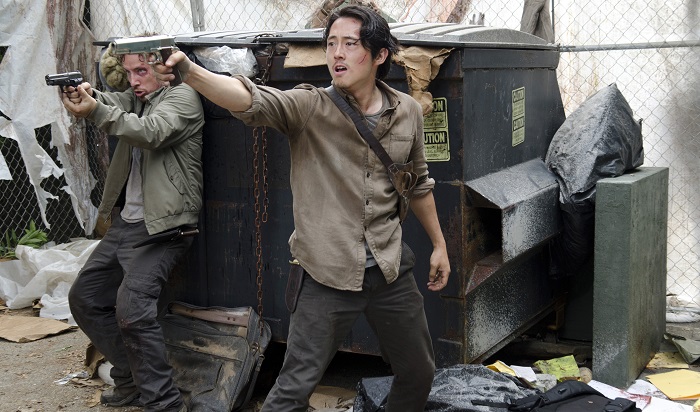
Creators: Robert Kirkman, Tony Moore, Charlie Adlard
Origin: The Walking Dead #2, 2003, Image
Glenn appears on just about every comic book or TV show related AAPI list, and for good reason. He’s one of a few Asian characters in pop culture (particularly on TV) that isn’t a collection of “Asian” stereotypes. He’s Korean American but with the emphasis on American. It’s not that he’s forgotten or abandoned his cultural and ethnic heritage, but that he’s so thoroughly American that he isn’t defined by it. He gets to be badass and a love interest! That makes him practically a unicorn in Western pop culture. I mean, there’s a reason #StarringJohnCho has blown up on Twitter and Tumblr. Usually when Asian men are allowed to be badasses they show off their prowess with martial arts and samurai swords regardless of ethnic origin. And outside of media created by Asians, they almost never get to be serious romantic leads. I may not like most of Robert Kirkman or AMC’s executive decisions regarding either version of The Walking Dead, but kudos to them to giving us Glenn.
Jubilee
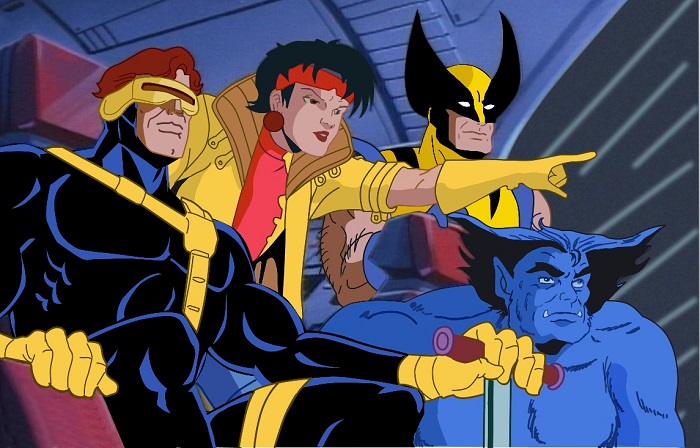
Real name: Jubilation Lee
Creators: Chris Claremont, Marc Silvestri
Origin: Uncanny X-Men #244, 1989, Marvel
TBH, the only Jubilee comic book I’ve ever read was X-Men vol. 4, the one where Jubilee rescues a baby boy in Budapest and adopts him. Apparently she’s part vampire now or somesuch. I don’t know, man, comics are weird. No, the reason she’s on here is because I grew up in the 1980s and 1990s and have therefore consumed a ridiculous amount of comics in after school cartoon form. Jubilee from X-Men: The Animated Series was the first cartoon character I remember realizing wasn’t white.
Jubilee was only a few years older than me and wasn’t some melodramatic adult with romantic troubles or evil or whatever. She and I both did gymnastic and were mallrats. Plus her outfit was AH. MAZE. ING. Here was Jubilee, a Chinese American girl being awesome and powerful in a sea of white people…you have no idea how thrilling that is when you’re the lone Black girl in a mostly all-white community. For the first time in my life I didn’t feel helpless and trapped by people who insisted on othering me. Jubilee showed me my otherness was my superpower and I’d be damned if I was going to let it go to waste.
Marko and Alana
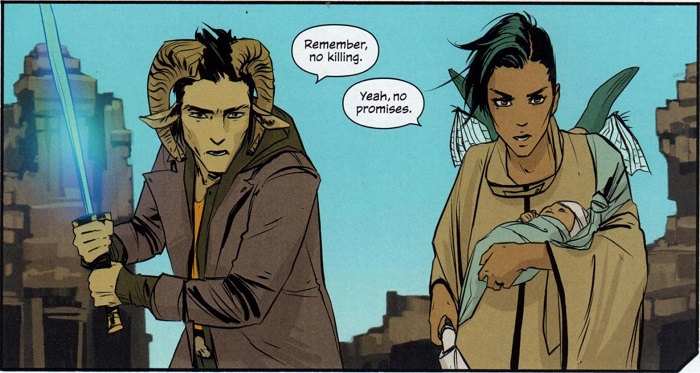
Creators: Brian K. Vaughan, Fiona Staples
Origin: Saga #1, 2012, Image
I could gush forever about how much I love Marko and Alana (and Hazel). Lucky for you I already have. Suffice it to say, there’s a reason two of Brian K. Vaughan’s characters have cracked my list. Saga is a fantastic graphic novel that kicks you in the ass and leaves you delirious with awe. And yes, Marko isn’t really Asian, in that he’s a magic-wielding alien, but he’s explicitly drawn as such so he still counts. Fiona Staples designed Marko based off Japanese models but intentionally avoided trope-y racial markers to give him a more realistic feel. Alana, for that matter, was drawn as if she was biracial with an Indian father. Or as Vaughan put it, “[Saga] is an original fantasy book with no superheroes, two non-white leads and an opening chapter featuring graphic robot sex. I thought we might be cancelled by our third issue.” As fan-freaking-tastic as Staples’ art is, Kevin Wada created my all-time favorite take on Marko and Alana.
Meiko Maki
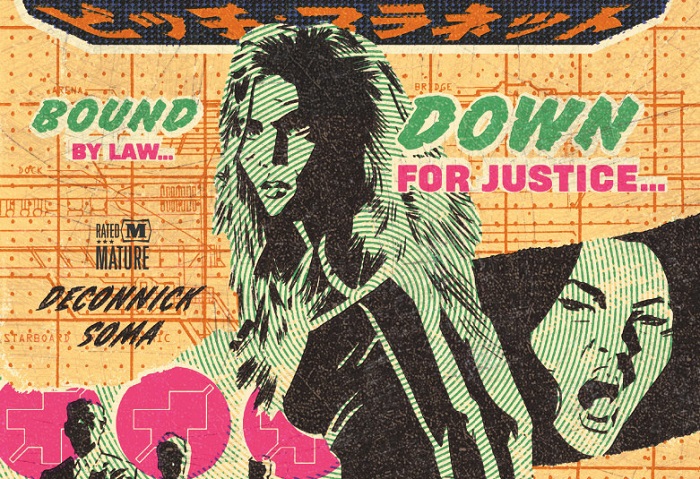
Creators: Kelly Sue DeConnick, Valentine De Landro
Origin: Bitch Planet #1, 2014, Image
Bitch Planet gives me all the feels: good, bad, and everything in between. Penny Rolle is the character I identify the most with, but Meiko Maki is the one I find most fascinating. As a way to lighten the load on Valentine De Landro, every third issue is a flashback on one of the main characters featuring different guest artists. Artist Taki Soma puts Meiko center stage in issue #6, and we learn how she went from a promising engineer to an inmate gladiator.
Just as Penny’s story dovetailed into a discussion about sexuality, physicality, and race, Meiko’s gets more specific with its intersectional feminism as she reacts against it and suffers dire consequences because of it. She is, like all of DeConnick’s women, a strong female character who lays waste to the Strong Female Character trope. She doesn’t get a lot of screentime, but what she does get Meiko spends wisely and ensures her story burns into your brain. (Not to mention the powerful essay by Debbie Chachra at and interview between Megumi Igarashi and Maki Yamane at the end of the issue that stresses the ideas dredged up by Meiko’s arc.)
Ms. Marvel
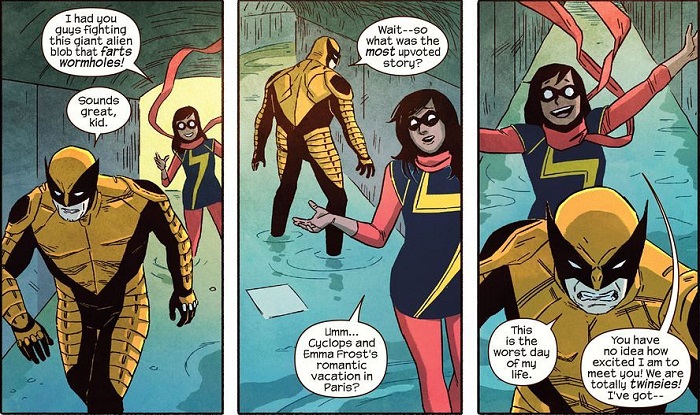
Real name: Kamala Khan
Creators: Sana Amanat, Stephen Wacker, G. Willow Wilson, Adrian Alphona
Origin: Captain Marvel #14, 2014, Marvel
The internet is full of thinkpieces about how important Kamala Khan is both inside and outside the comics world. She’s the first Muslim character to star in her own book and has become such a cultural touchstone for diversity that when anti-Islam advertisements went up on buses in San Francisco it was her picture that quashed them. Kamala, like all the other comic book characters on this list, never descend into the muck of stereotypes and steer clear of tokenism.
Her religion and culture are a part of who she is but never limit or define her—she wears a shalwar kameez and is religious but she’s also a nerdy teenage girl who writes superhero fanfic and hangs out with her friends at the corner market. Her powers are pretty cool, but her personality drives her stories. Most girls, Pakistani American Muslims or otherwise, recognize Kamala’s struggles with her parents’ rules, overbearing relatives, and adolescent romances and friendships. She is so relatable that I often use her series as a comics entry point for teen girls. Kamala proves definitively that diversity sells when characters are allowed to be more than just a PC checklist.
Pineapple Man
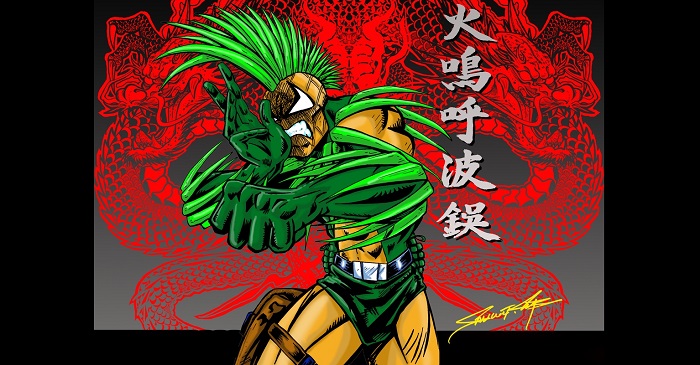
Real name: Isamu Pahoa
Creators: Sam Campos
Origin: Pineapple Man #0, 1994, SoloGraphics
Isamu Pahoa, a Hawaiian high school graduate turned small time criminal, is shot atop a heiau for Kūkā’ilimoku (aka the “snatcher of islands”) and left for dead. His blood soaks into the stone but instead of dying he’s imbued with the power of the Hawaiian god of war and takes the name Pineapple Man. He uses his newfound powers for good, and each story deals with local themes and references. What makes Pineapple Man so important isn’t just his Pacific Islander heritage, but that Campos saw a gap in comics and decided to fill it on his own. When the series first came out, there weren’t any other Native Hawaiian superheroes (and even now there’s only Loa and Jason Momoa). Pineapple Man is the embodiment of homegrown heroes and independent art. The series was about as indie as it gets, and while it may not be the best comic out there it deserves more of a chance in the big leagues than it’s gotten. You listening, Image?
Ruby and Josh
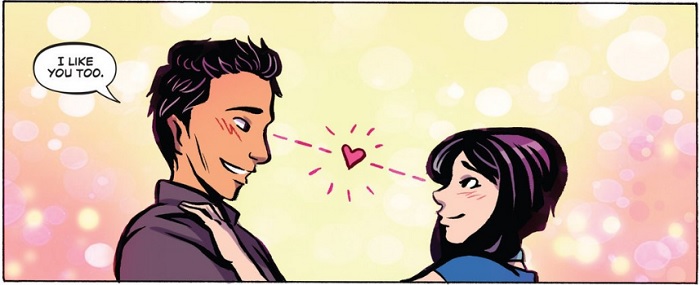
Creators: Sarah Kuhn, Sally Jane Thompson
Origin: Fresh Romance #1 “The Ruby Equation”, 2015, Rosy Press
As rare as it is to have an Asian character be part of a romance, it’s practically unheard of in Western media to have two Asian characters in a romance together. Alright, so technically Ruby is a pan-dimensional alien, but still. “The Ruby Equation” is a little 5-part story about an alien girl named Ruby who needs to pair off a certain number of couples before she can be promoted but who soon finds herself in the middle of her own romance. Josh is a screenwriter who gets in on Ruby’s matchmaking until he decides he’d rather be matched with her. The story is cute, the characters cuter, and holy moly have you seen Kevin Wada’s cover? I could easily take a whole series on Ruby and Josh’s romantic misadventures.
Silk
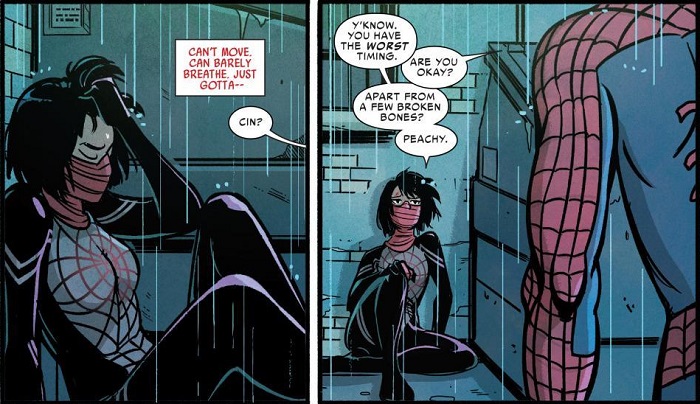
Real name: Cindy Moon
Creators: Dan Slott, Humberto Ramos
Origin: The Amazing Spider-Man vol. 3 #1, 2014, Marvel
Marvel’s Spidey-related characters are almost as extensive as DC’s sprawling Bat Family, but at least the pack is full of awesome superheroes. Spider-Woman is yay, Miles Morales even more yay, Spider-Gwen makes my heart all a’flutter, but Cindy Moon is just the best. Before “Secret Wars” ate her storyline last summer, Silk’s solo title was fun and heartbreaking, a powerful story about a young woman not dealing very well with her trauma and trying to find a balance between PTSD and superheroics. She may have Peter Parker’s spider powers, but Silk is very much her own hero and her own woman. I’m a sucker for stories about heroes confronting their insecurities and personal failings, and Cindy is a master at stepping into fights she knows she can’t win.
Honorable Mentions
- Cassandra Cain
- Colleen Wing
- Jason Momoa’s Aquaman
- Triumph Division
Alex Brown is an archivist, research librarian, writer, geeknerdloserweirdo, and all-around pop culture obsessive who watches entirely too much TV. Keep up with her every move on Twitter and Instagram, or get lost in the rabbit warren of ships and fandoms on her Tumblr.










